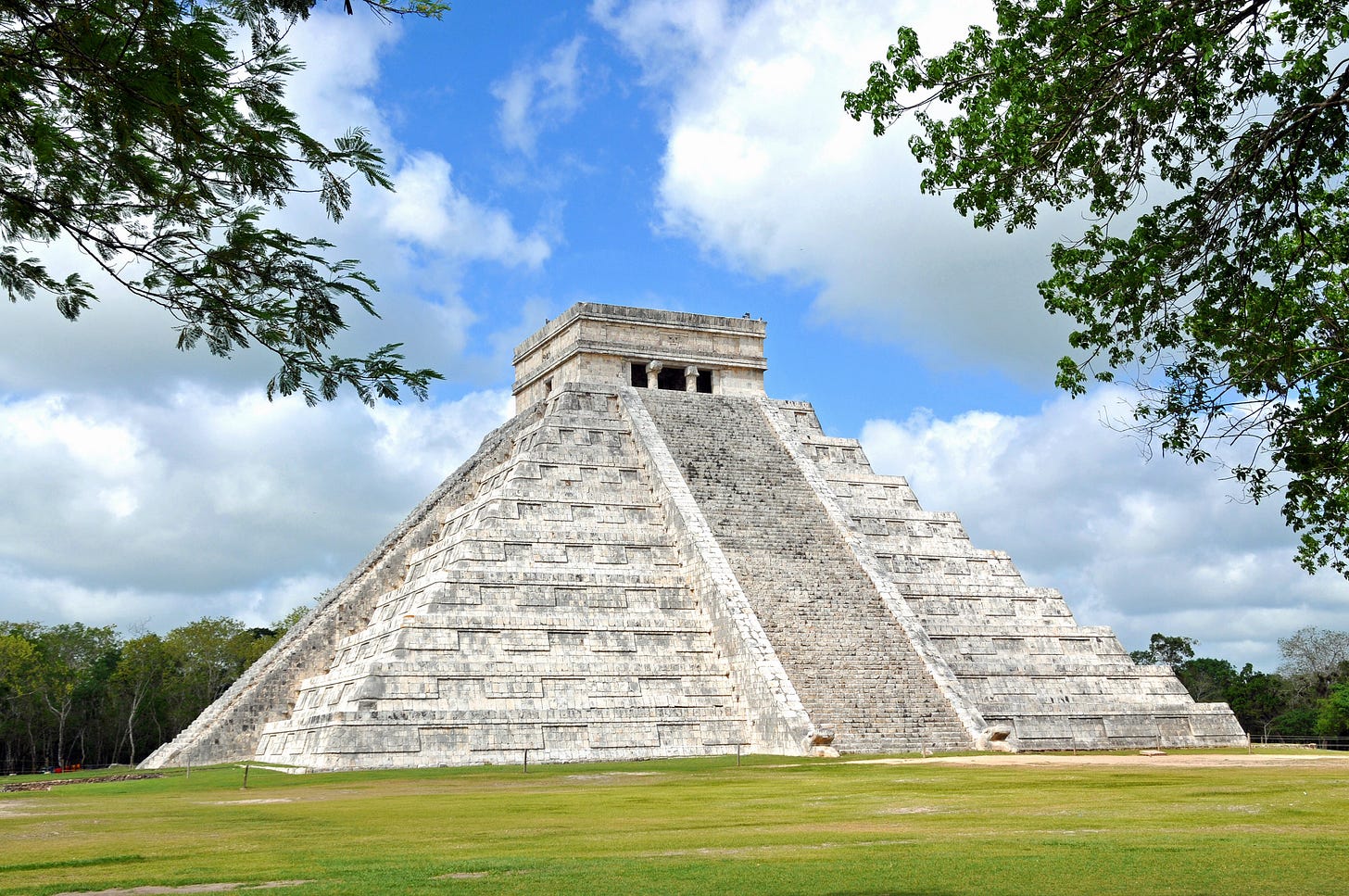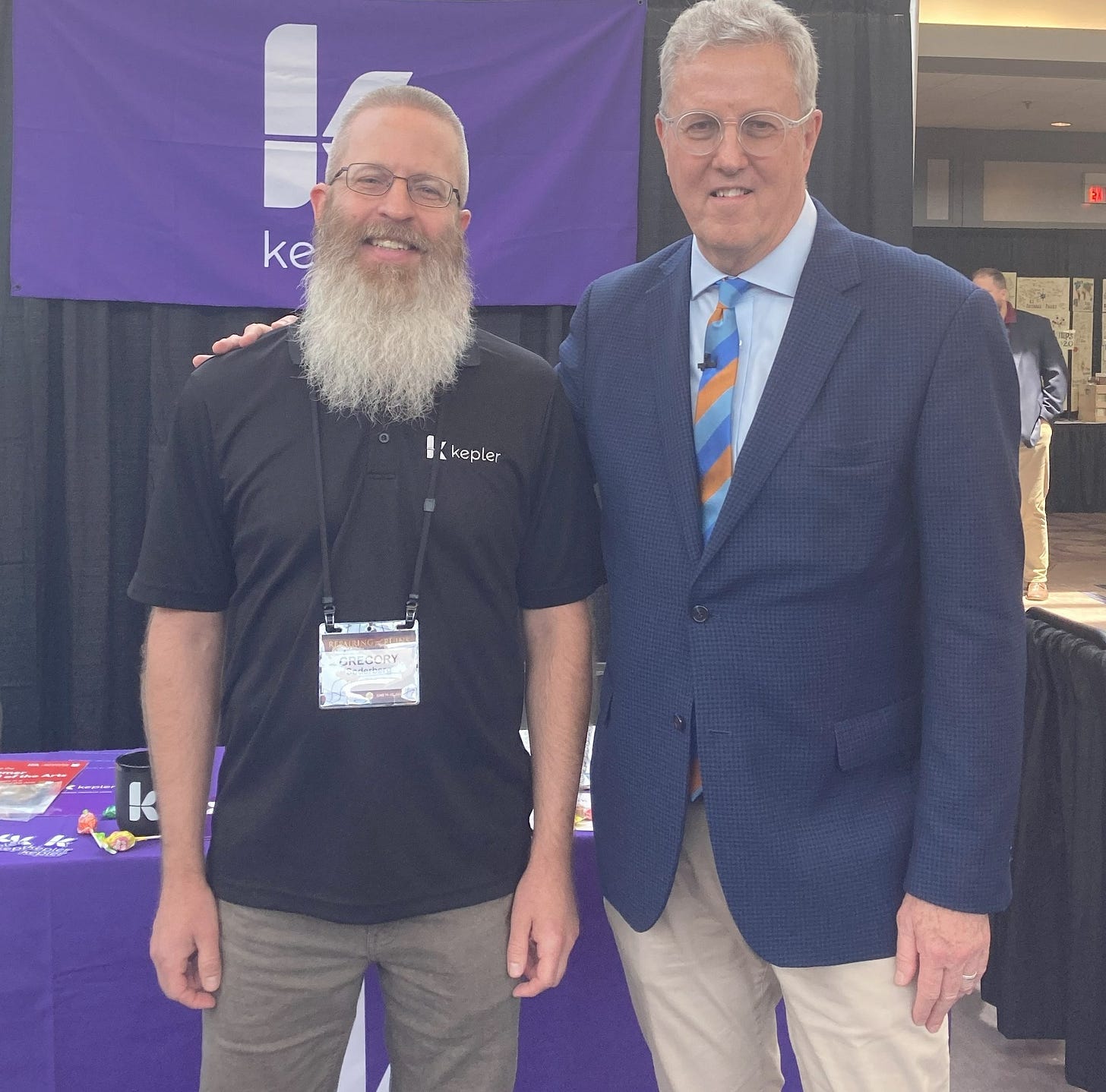Recently, I was watching a documentary with our youngest daughter. I was insisting on something “educational.” The documentary was about how a National Geographic team was using LiDAR to create a map of the ground beneath Mayan temples in central America. Today, archeologists can learn about a site without actually digging anything up! Along the way, they blithely commented on how many human sacrifices had been offered to the Mayan gods at these sites. There was hardy a hint of condemnation—just some routine human sacrifices.
But, turn it around. What if archeologists discovered an ancient Christian, or even Jewish, site, where hundreds of non-Christians or non-Jews had been sacrificed? Can you imagine the outrage? So why do the Mayans and Aztecs get a free pass? Because they belong to a special class of people—the oppressed! Never mind that they fought, killed, and enslaved other tribes. No, these poor indigenous persons were conquered by the white, European, male, CHRISTIAN, colonial oppressors. Therefore, whatever the Mayans did pales in comparison to the axiomatic fact of their oppression by the West. This is why the Hamas terrorists who brutalized women and children during the raid of Oct. 7, 2023 were applauded by Ivy-league professors and college students. This is why people approve of, and even cheer for, Luigi Mangione, the suspected shooter in the killing of UnitedHealthCare’s CEO.
This is the heart of the radical, Revolutionary mindset. Oppression justifies violence.
But the West is not unique in its conquest and oppresssion:
History is a catalog of criminality. Western civilization, however, is the first to have become conscious of the criminal nature of its historical crimes. This is a good thing because it gives humanity an opportunity to create a future that is not shaped by criminality. Yet instead, on account of their historical illiteracy, many settler colonial theorists imagine that Western societies, which are invariably their targets, are uniquely deserving of condemnation” (Oscar Clarke, “The Immoral Myths of ‘Settler Colonialism,’” in Modern Age, Fall 2024, 72).
The pseudo-social science of “settler-colonialism studies” is revolutionary and short-sighted. It ignores the mountains of evidence that people-groups and tribes have been attacking and oppressing each other throughout history. Just read Thucydides on the Peloponnesian War and notice how much of the wider war was sparked by the colonial adventures of various Greek city-states. The absurdity of the theory is seen when they claim that African-Americans, Asians, and Latinos living in the US are complicit in “settler-colonialism” because they have benefitted from the systemic injustices against indigenous populations. Forget “white guilt”—we all have “settler-colonial” guilt now!
This sort of nonsense is part of why I’ve been working on new book. It’s currently titled, Let the God of Orphanages Answer! Reformational Justice in a Revolutionary Age. I’m working with Dr. George Grant on this project. We’re re-purposing some of his previous work, and I’m adding generous amounts of my own original material. Grant has been a long-time inspiration for my own work, with his combination of scholarship and practical ministry. We’ve met several times over the years, and it’s a privilege to be working with him on this project.
(Dr. Grant with author at Kepler Education table at the Association of Classical Christian Schools conference, 2023.)
Here’s a short introduction to the project:
Recent years have witnessed a growing divide in Christian circles on the issue of social justice. The reluctance of conservative Christians to discuss the issue has driven many who care deeply about issues of justice into “progressive” or decidedly non-evangelical directions. For many, “social justice” is something that sounds suspiciously “liberal” or “progressive.” This book will not attempt to untangle all the knots of contemporary polemics but will rather present portraits of Christians in the past who engaged social challenges without abandoning orthodoxy.
The goal is to help ground contemporary debates in the wisdom of the past. Current Christian discussions about social justice tend to be reactionary and partisan. Looking to the past helps to liberate us from the “tyranny of the present,” and provide a more substantive theological and ecclesiastical grounding for dialogue and action on this important issue. This book will contrast the approaches of “Reformational” justice to the aims and tactics of “Revolutionary” justice with the hope that Christians today will be encouraged to pursue the work of Reformational justice, inspired by heroes of the faith.
The book is primarily a historical treatment, but there will be plenty of engagement with, and critique of current radical, leftist, revolutionary, woke ideologues. However, we don’t want to just focus on the present, because that will quickly date the book. Whatever current nonsense of going on will soon be surpassed by something even more incoherent than “settler-colonial studies.”
Here’s a bit of Thomas Chalmers, one of our main inspirations in the book:
“It is not by means of economic enlargements, but of moral principles and restraints, that the problem of our difficulties is at length to be fully and satisfactorily resolved … We look for our coming deliverance in a moral change, and not in any or in all, of those economic changes put together, which form the great panacea of so many of our statesmen. Without the prudence, and the virtue, and the intelligence of our common people, we shall only have a bulkier, but withal as wretched and distempered a community as ever; and we repeat, that a thorough education, in both the common and Christian sense of the term, forms the only solid basis, on which either the political or economic well being of the nation can be laid” (Thomas Chalmers, On Political Economy, 175).
What questions do you have? What would you like to see in a book like this?
Speaking of education, my classes at Kepler Education are filling quickly!
I'm offering these classes next year:
Old Western Culture - The Greeks (grades 9-10) - Thur - 9-10:30am, PT
OWC - The Romans (grades 9-11) - Thur - 10:45am -12:15pm, PT
OWC - Early Moderns (grades 11-12) - Fri - 10:30am-12:00pm, PT
All classes cost only $800.00 for the entire year. Each class meets only 1x a week, for 90 min. Kepler Education utilizes the "flipped classroom" or "Oxford tutorial" style. Each week, students watch one or two lectures. Then they meet 1x a week as a class with me to discuss what they read in a seminar-style format. This model reduces screen time, and gives students more time to pursue jobs or interests outside of school. Old Western Culture classes at Kepler combine history, theology, literature, and philosophy, to help equip faithful leaders for the future.
Thanks for reading!





